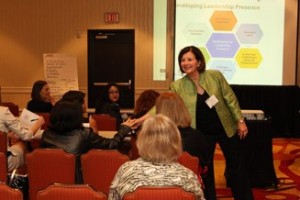 Meeting Planning and Facilitation Tools:
Meeting Planning and Facilitation Tools:In their successful best seller, Execution, the Discipline of Getting Things Done, Larry Bossidy and Ram Charan defined Execution as “a systematic process of rigorously discussing how’s and what’s, questioning, tenaciously following through, and ensuring accountability. . . a systematic way of exposing reality and acting on it.”
Many organizations have people who are great at coming up with new ideas,but the Company that thrives in this marketplace is the one who can execute – implement those ideas through to fruition. In the United States, time spent in meetings each week was 5.5 hours, and 71% of those surveyed said they were unproductive.
(www.leadingedgealliance.com/issues/2005/summer/productivity/)
Meetings are where it happens (or not.) People come together to share information, collaborate, problem solve, and make decisions. It is the microcosm of the Organization’s culture. It exemplifies “how we do things around here.” So if we plan to create a Culture of Execution, where we really get things done – why not start with our meetings!
In this article, we explore 5 critical elements of designing and delivering a successful, meeting that yields tangible, focused outcomes: planning the meeting, meeting facilitation, helpful rules, facilitation tools, decision making tools, and tools for ensuring accountability.
There is a useful acronym for meeting planning and ensuring that critical components are addressed. It is P.A.R.R.E.
In thinking about meeting facilitation, we must remember the two key components – Content and Process.
The Content is the “What” of the meeting – the tasks to accomplish, the projects to execute, or the products to deliver. The Process is the “How” of the meeting – the relationship between participants and the way people communicate with each other
If the Project Leader or Team Leader is very invested in the outcome of the meeting content, it is often advisable to have a neutral, skilled facilitator to lead the meeting and focus on process. That way, the team leader can fully participate and have a voice in the decision making around meeting content,
while the facilitator can ensure all people are heard and all issues are addressed in the most efficient way.
Many Companies have trained facilitators in house. If not, calculate the cost of ineffective meetings that never seem to have closure or clear results. Weigh that cost with the benefit of hiring an external, process facilitator who can ensure the work gets done in
the most efficient and collaborative way.
Download: Creating a Culture of Accountability by Charlotte Kells (PDF)